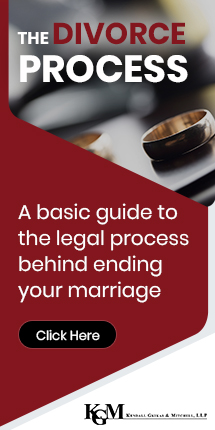One of the hardest things about a divorce can be figuring out how to split the assets. In most cases, there are a few items that both sides can agree on but many things that they can’t. If you and your spouse are splitting up and need help figuring out how you can split your assets too, then read on for some tips. Then contact Kendall Gkikas & Mitchell at 909-482-1422 for a consultation with a family law attorney who can help.
There are three types of property in a California divorce
Legally, there are essentially three kinds of assets in California:
- Community property
- Separate property
- Combination property
The first step is to work through your property and try to come to an agreement about which category each piece falls into. For example, is your car community property or your property? The law has plenty to say about this but ideally, you and your spouse could agree without bringing lawsuits into it.
If you can’t agree on a particular piece of property, then discuss exactly where the disagreement is coming from. Then see what type of documentation could help clear it up. For example, whether or not a car is community property would be based partially on when it was bought and who financed it. Getting loan documents and loan applications can make it easier to put it into one category or another.
Don’t get caught up on low-value assets
One of the biggest issues with trying to divide property during a divorce is both sides becoming caught up in the process and forgetting to look at the big picture. For example, is it worth it to fight over a table that’s worth $50? Probably not. On the other hand, it would likely be more reasonable to push back during a disagreement about a $50,000 boat.
Decide who’s paying for an expert before you hire them
In some complicated situations, you may need the advice of an expert. This could be a forensic CPA to come in and look at your liquid assets, or it could be an appraiser to give you a dollar amount for various pieces of tangible property you own. There are two things that should be agreed on before you move forward with these experts.
First, make sure you’re both in agreement if you each need to hire an expert or if you can use a joint expert. Next, you should decide who is going to pay for the experts. If you both decide to work with your own expert, then it’s likely you’ll each pay for your own. But what about the fees of an appraiser who’s assessing joint property for the both of you?
Exchange documents through your attorney
It is essential that you work through your attorney – not around them. Remember that we are here for your benefit and are looking out for your best interests. Doing an effective job requires us to be in the loop. To learn more about your options in divorce, reach out to Kendall Gkikas & Mitchell at 909-482-1422 for a consultation.



